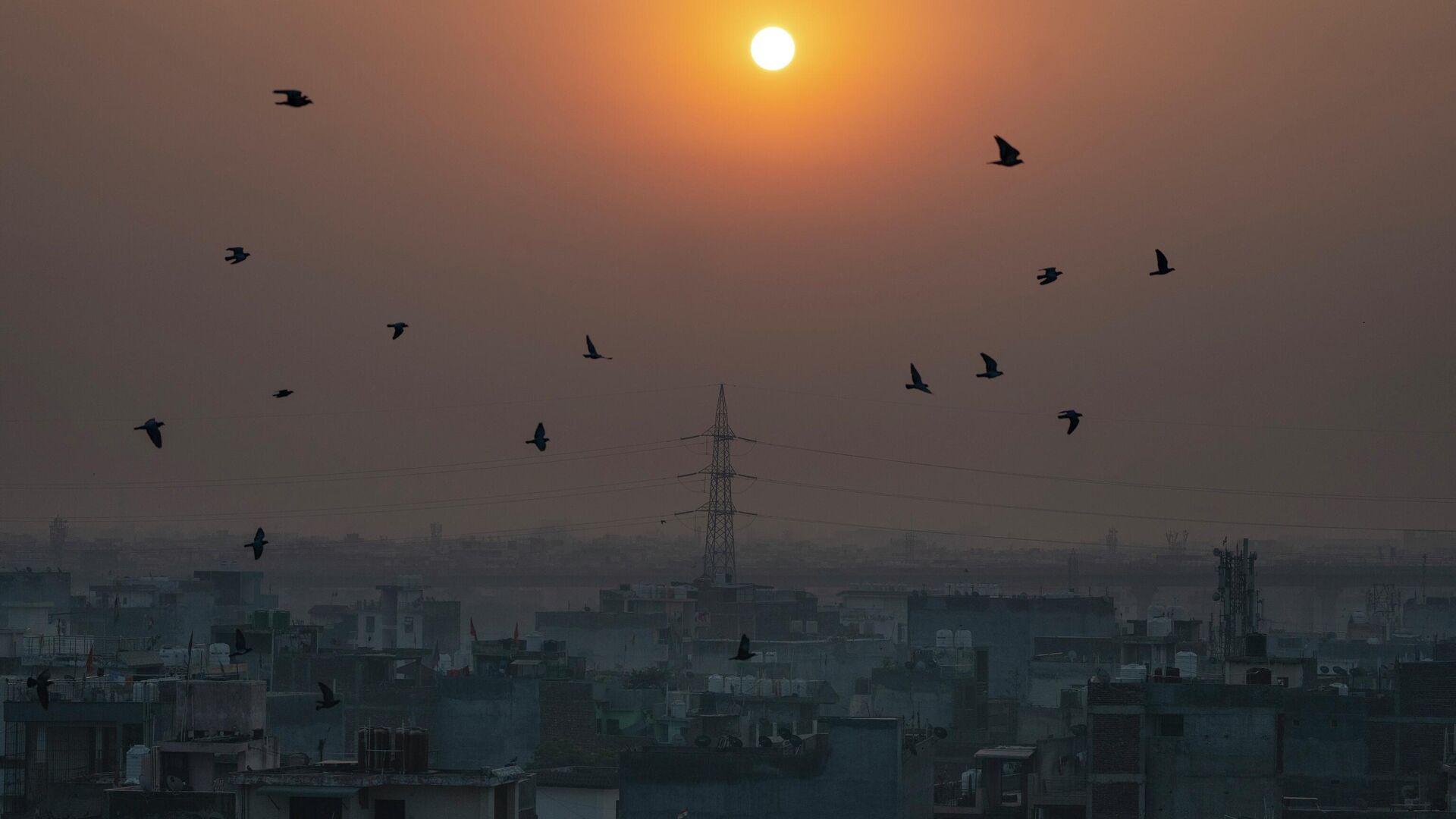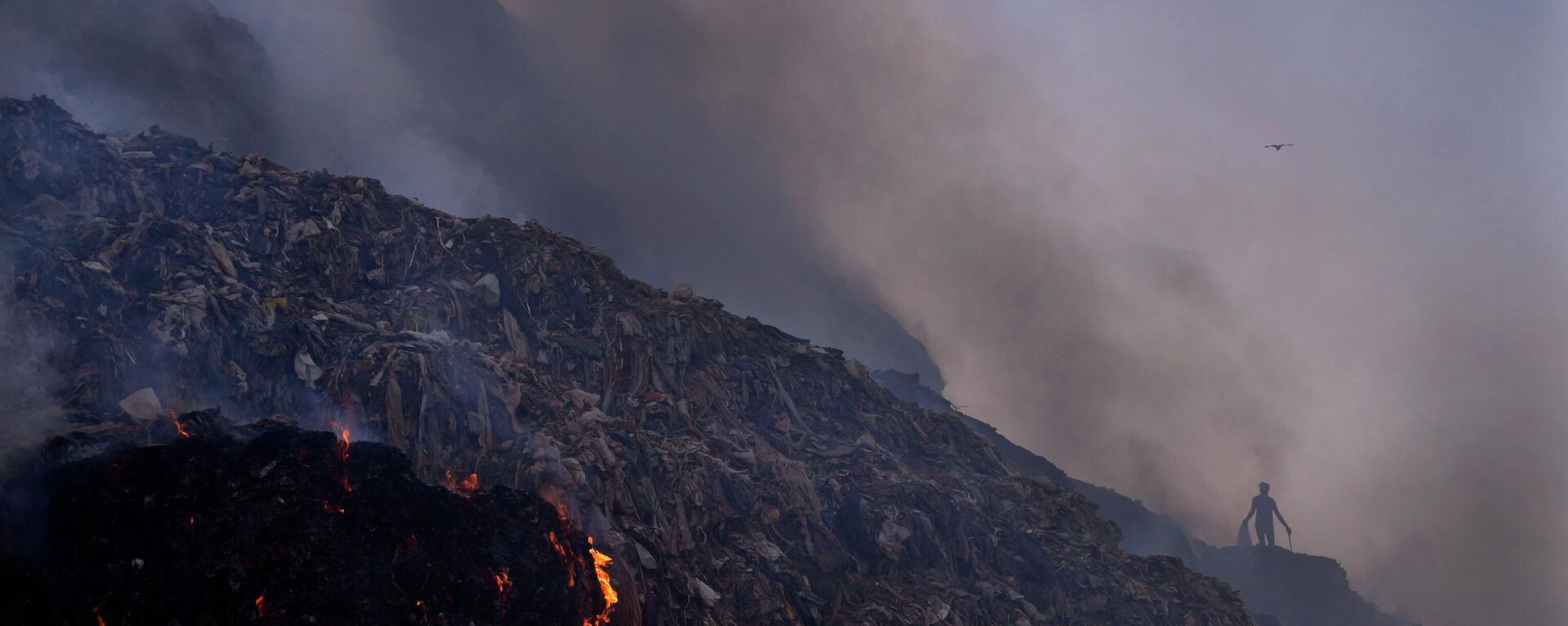https://sputniknews.in/20230829/air-pollution-reduces-life-expectancy-by-more-than-five-years-in-south-asia-study-3913881.html
Air Pollution Reduces Life Expectancy By More Than Five Years in South Asia: Study
Air Pollution Reduces Life Expectancy By More Than Five Years in South Asia: Study
Sputnik India
A study from the Energy Policy Institute of the University of Chicago reveals that air pollution is believed to reduce the average life expectancy of South Asia's residents by more than five years.
2023-08-29T17:58+0530
2023-08-29T17:58+0530
2023-08-29T17:58+0530
world news
south asia
bangladesh
india
science & tech
air pollution
health
health issues
health crisis
the world health organization (who)
https://cdn1.img.sputniknews.in/img/07e7/08/1d/3914191_0:160:3073:1888_1920x0_80_0_0_467c6b97a93f5b0cf350749349f08a0f.jpg
A study from the Energy Policy Institute of the University of Chicago reveals that air pollution is believed to reduce the average life expectancy of South Asia's residents by more than five years.The negative impact of dirty air on global life expectancy is predominantly concentrated in six countries, namely Bangladesh, India, Pakistan, China, Nigeria, and Indonesia, as emphasized by Professor Michael Greenstone, the author of the study. People in these countries are losing anywhere from one to six years of their lives due to the polluted air they are breathing.Bangladesh, known as 8th world's most polluted country, faces a grave situation where its residents may lose an average of 6.8 years of their lives due to the detrimental effects of fine particulate air pollution.In India's capital city, New Delhi, known as the most polluted metropolis in the world, the average life expectancy has plummeted by 11.9 years.While Bangladesh and India are marred with several challenges due to rising air pollution, there are some countries that have managed to decrease air pollution. In the US, particulate air pollution has decreased by 64.9% since 1970. This has resulted in a 1.4 year rise in average life expectancy.In some European countries too, life expectancy has increased by 4.5 months.The report reveals that the air quality in South Asia has significantly worsened due to the rapid pace of industrialization and population growth. In fact, the levels of particulate pollution in the region have surged by over 50% since the start of the century.The air population has become the main threat to people's health living in the region.
https://sputniknews.in/20230701/most-difficult-task-arvind-kejriwal-on-improving-delhis-air-quality--2777149.html
south asia
bangladesh
india
Sputnik India
feedback.hindi@sputniknews.com
+74956456601
MIA „Rossiya Segodnya“
2023
Sangeeta Yadav
https://cdn1.img.sputniknews.in/img/07e6/0c/0f/110602_0:0:641:640_100x100_80_0_0_c298016a79eb02ef8caa9d1f688c12a5.jpg
Sangeeta Yadav
https://cdn1.img.sputniknews.in/img/07e6/0c/0f/110602_0:0:641:640_100x100_80_0_0_c298016a79eb02ef8caa9d1f688c12a5.jpg
News
en_IN
Sputnik India
feedback.hindi@sputniknews.com
+74956456601
MIA „Rossiya Segodnya“
Sputnik India
feedback.hindi@sputniknews.com
+74956456601
MIA „Rossiya Segodnya“
Sangeeta Yadav
https://cdn1.img.sputniknews.in/img/07e6/0c/0f/110602_0:0:641:640_100x100_80_0_0_c298016a79eb02ef8caa9d1f688c12a5.jpg
air pollution, life expectancy, south asia, study, world health organization, who report, world's population, air pollution, premature deaths, energy policy institute of the university of chicago, global life expectancy, bangladesh, india, pakistan, china, nigeria, indonesia, professor michael greenstone, bangladesh, world's most polluted country, the most polluted metropolis in the world, decrease in air pollution, european, industrialization, population growth,
air pollution, life expectancy, south asia, study, world health organization, who report, world's population, air pollution, premature deaths, energy policy institute of the university of chicago, global life expectancy, bangladesh, india, pakistan, china, nigeria, indonesia, professor michael greenstone, bangladesh, world's most polluted country, the most polluted metropolis in the world, decrease in air pollution, european, industrialization, population growth,
Air Pollution Reduces Life Expectancy By More Than Five Years in South Asia: Study
The last World Health Organization's (WHO) 2018 report revealed that 92% of the world's population lived in areas where air pollution exceeds safety standards. It is estimated to cause about 4.2 million premature deaths worldwide each year.
A study from the Energy Policy Institute of the University of Chicago reveals that air pollution is believed to reduce the average life expectancy of South Asia's residents by more than five years.
The negative impact of dirty air on global life expectancy is predominantly concentrated in six countries, namely Bangladesh, India, Pakistan, China, Nigeria, and
Indonesia, as emphasized by Professor Michael Greenstone, the author of the study. People in these countries are losing anywhere from one to six years of their lives due to the polluted air they are breathing.
Bangladesh, known as
8th world's most polluted country, faces a
grave situation where its residents may lose an average of 6.8 years of their lives due to the detrimental effects of fine particulate air pollution.
In India's capital city,
New Delhi, known as the
most polluted metropolis in the world, the average life expectancy has plummeted by 11.9 years.
While Bangladesh and India are marred with several challenges due to rising air pollution, there are some countries that have managed to decrease air pollution.
In the
US, particulate air pollution has decreased by 64.9% since 1970. This has resulted in a 1.4 year rise in average life expectancy.
In some European countries too, life expectancy has increased by 4.5 months.
The report reveals that the air quality in South Asia has significantly worsened due to the rapid pace of industrialization and population growth. In fact, the levels of particulate pollution in the region have surged by over 50% since the start of the century.
The air population has become the main threat to people's health living in the region.



